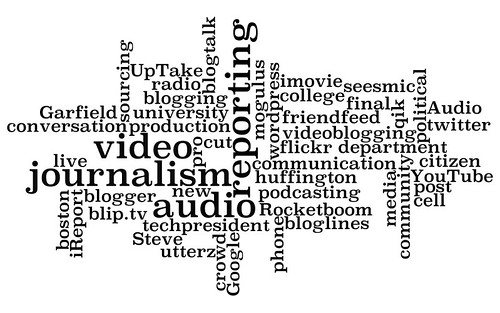
Have you read Cara Buckley's piece in
The New York Times entitled, "
Starting Salaries but New York Tastes"?
Exactly what was the point of that article?If you haven't read it, a quick recap by way of an extended nut graf:
Having one’s mother mail rotating boxes of old clothing is just one of the myriad ways that young newcomers to the city of a certain income — that is, those who are neither investment bankers nor being floated by their parents — manage to live the kind of lives they want in New York. Every year around this time, tens of thousands of postcollegiate people in their 20s flood the city despite its soaring expenses. They are high on ambition, meager of budget and endlessly creative when it comes to making ends meet.
Some tactics have long been chronicled: sharing tiny apartments with strangers. Sharing those apartments with eight strangers. Eating cheap lunches and skipping dinners — not just to save money, but so that drinks pack more of a punch and fewer need be consumed.
But there are smaller measures, no less ingenious, that round out the lifestyle. These young people sneak flasks of vodka into bars, flirt their way into clubs, sublet their walk-in closets, finagle their way into open-bar parties and put off haircuts until they visit their hometowns, even if those hometowns are thousands of miles away.
In general, the article is interesting. As New York's prices get higher, and the economy crisis reaches deeper,
the young professionals that move to the city post-Sex and the City absolutely have trouble making ends meet. When high expectations meet low salaries, it's cause for any interesting article in the Metro section.
But hold on, just one second: this article is indicative of truly poor news judgment.
Why? Because it allows for
a local trend story that isn't even-handed. And as all journalists know, you're supposed to interview
all sides of a story.
In the article, Buckley uses characters/sources that are all living beyond their means in a decidedly unequal way: notably, putting extremely overpriced drinks, habits or digs in Manhattan's most sought-after neighborhoods above basic daily nutrition. While that's an interesting and notable trend,
there's not a single mention of those unsupported young professionals who do the opposite -- live within their means to get ahead. "But wait one second!" you say. "The Times runs a story like that all the time! This story was a breath of fresh air, a new take on a perpetual phenomenon!"
That's true. But without a mention of the other side of a trend,
a story about it shouldn't run.What's more, the story doesn't even make use of comparable subjects: all of the sources in the article live in coveted neighborhoods of the young: Chelsea, West Village, downtown Brooklyn, Williamsburg. All of them profess having problems eating well-balanced meals. But guys like Peter Naddeo, a $15-an-hour musician, just can't be compared with Allison Mooney, a publicist in the West Village, or Adam Liebsohn, a communications strategist who makes $60,000 a year and lives in the East Village but finds it impossible to pay for a broadband connection. Some find it hard to eat out on a $3.50 plate of rice and beans.
Ever hear of the supermarket?As an editor, I look at this group and I see problems: True, all the sources are on their own financially, but where are the people making $10 an hour or less, without college education or recently graduated and no longer allowed to live on loan checks? I know several people who pay
less than $600 a month (far less than some of the rents mentioned in this article) and make ends meet freelancing -- as in,
no full-time job, no benefits, no health insurance. So to an editor's eye -- one that knows New York -- I ask: with all of these reporting holes,
why?Or more appropriately:
so what?To me, running an article like this is like running a piece on homeless people who drink away their money or use it on drugs. Without the article addressing the greater problem of, say, drug laws or the psychological problems of alcohol dependency, the article is one big,
"so what?"
I feel the same way about this piece. It's as if the
Times didn't want to pass judgment on the ridiculous fact that many of the sources in this piece are acting irrationally (to boot, without looking at
why). So in avoiding showing the other (arguably more rational) side and putting it all into perspective -- which is what a good article should do, of course --
they condoned an article to run that was neither balanced nor fair. Though the nut graf is to the point, it promises the wrong point in the words ahead. It is misleading and written for a different article. To reference a specific example, we see that this article is supposed to be about even better ways that poor young professionals manage living in such a high-priced city:
They are high on ambition, meager of budget and endlessly creative when it comes to making ends meet. (emphasis added)
But for many of the sources in this article, there was no creativity involved in making ends meet. For many, living and "making ends meet" was simply living extravagantly and making the wrong kinds of sacrifices to zero out the budget.
Who cares how creative a person on a limited budget must be to make ends meet when that person has habits so easily beyond their means financially?Maybe it wouldn't be so hard for a
communications strategist pulling in 60K a year to afford
broadband internet connectivity if he didn't live in such a high-priced real-estate area.
The effect the article leaves on its readers is also problematic. For an article that made such a point to note that these young professionals were not relying on trust funds or parents for additional income, it wildly misconstrues the overall, non-supported young professional population as irrational spenders -- and without figures, data, reasonable comparison or anything to round out the trend, it's a misleading, failed piece.
And for that, I say, go back out there and keep reporting.






















![Editorialiste [at] gmail](https://blogger.googleusercontent.com/img/b/R29vZ2xl/AVvXsEjzDvlHqUd5msfCmRq2Q5EZRpn_nbVg33bjiUhLEigM_5fudZhIHvuAVxB4_MS0xn-cQ0EKyjxOua1ysQ4NdMzyvhg1oSVTv6OJAarhVTqG0BBkJKTjqBhwMjrMGOANWxT8l8rKFg/s220/editorialiste_logo.jpg)
The difference — which I think is generational — is in how you shape the information that comes up about you. The reason why it is useful to willingly and knowledgeably put identifying information online is, in my opinion, largely to take control of the information that appears.
You may no longer have a choice in whether or not you appear in a search. Is it so bad to put forth the information you’d prefer to be identified with?
— Posted by The Editorialiste.